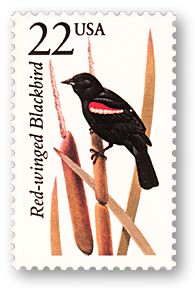Weather-wise, it had been a fairly typical November day, two days before Thanksgiving, in the western Cumberland County agricultural community of Stow Creek Township - mostly sunny, with a bit of a nip in the air. Then, all of a sudden, it was raining dead birds. And by the time the brief "shower" was over, as many as 200 red-winged blackbirds (Agelaius phoeniceus) littered the ground in a small housing development off Frank Davis Road surrounded by vast farm fields. "They just fell from the sky," said Larry Hajna, a spokesman for the New Jersey Department of Environmental Protection. It was the second time in less than three weeks that a die-off of blackbirds had occurred in the same rural neighborhood; the first time, a couple of dozen dead birds were found. A similar incident had happened in a North Jersey farming area earlier in the year, Hajna said. After county agricultural agents had been notified by homeowners, the DEP's Division of Fish and Wildlife arrived in Stow Creek and removed the birds, collecting some of them to be sent to a state lab for necropsy, toxicology, and histopathology tests. But the results of all the tests were inconclusive, Hajna said last week. "We did ascertain that the birds suffered trauma and internal bleeding from hitting the ground," Hajna said. "But what made them fall from the sky in the first place . . . we can't say for certain."
The red-winged blackbird is omnivorous. It feeds on plant materials, including seeds from weeds and waste grain such as corn and rice, but about a quarter of its diet consists of insects and other small animals, and considerably more so during breeding season. It prefers insects, such as dragonflies, damselflies, butterflies, moths, and flies, but also consumes snails, frogs, eggs, carrion, worms, spiders, mollusks. The red-winged blackbird forages for insects by picking them from plants, or by catching them in flight. In season, it eats blueberries, blackberries, and other fruit. These birds can be lured to backyard bird feeders by bread and seed mixtures and suet. In late summer and in autumn, the red-winged blackbird will feed in open fields, mixed with grackles, cowbirds, and starlings in flocks which can number in the thousands.
Sources:
Philly.com, December 27, 2016
http://www.philly.com/philly/news/new_jersey/20161227_Why_are_birds_fal…
Wikipedia
https://en.wikipedia.org/wiki/Red-winged_blackbird

- Login om te reageren
